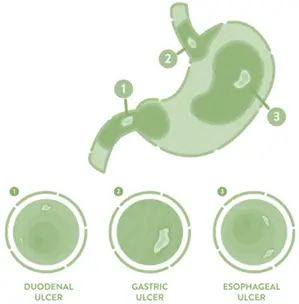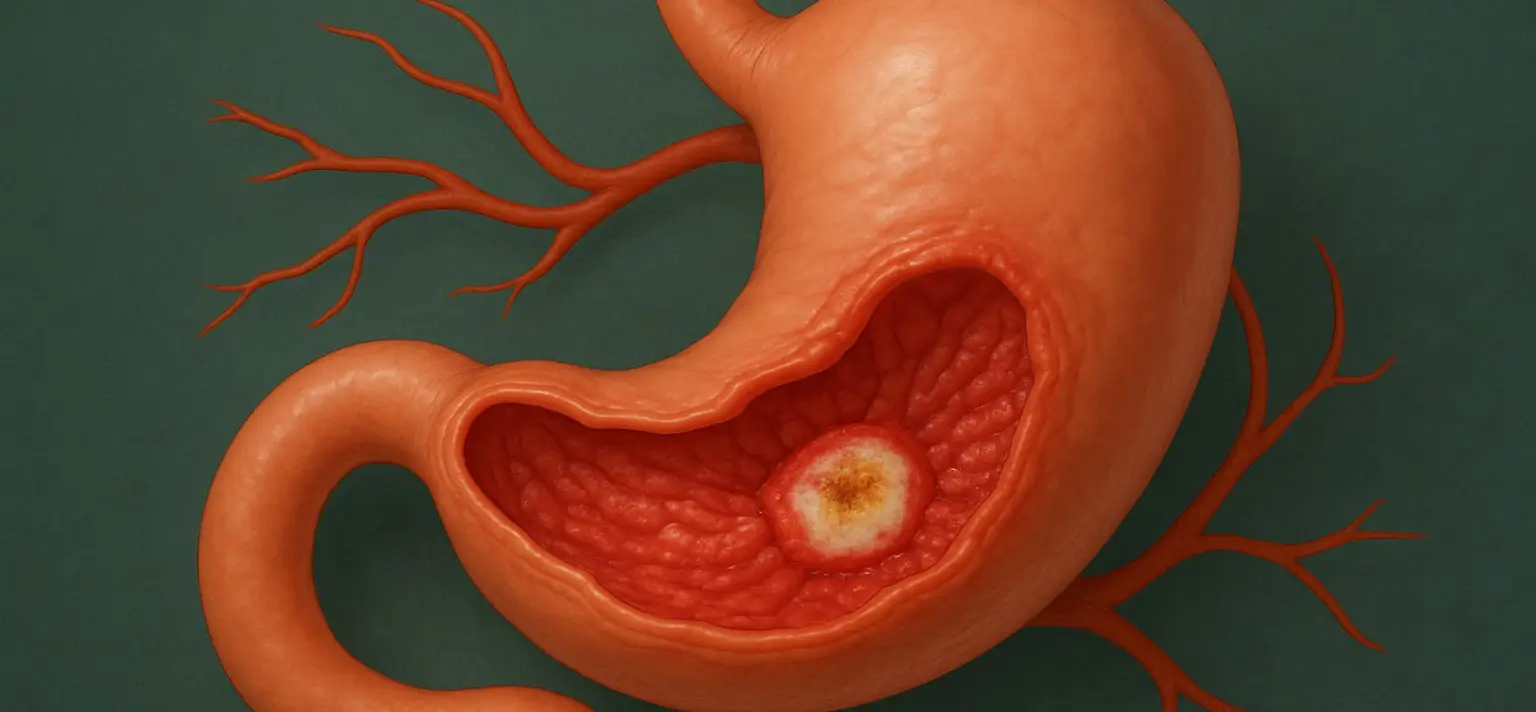- peptic ulcer is a sore that develops on the lining of the stomach, small intestine, or esophagus.
- It occurs when the protective mucous layer is eroded by stomach acids.
- Peptic ulcers are classified into gastric ulcers (in the stomach) and duodenal ulcers (in the upper part of the small intestine).

This is a sample ad placement!
Causes of Peptic Ulcer
- Helicobacter pylori Infection: A common bacterial infection that can damage the stomach lining.
- Nonsteroidal Anti-Inflammatory Drugs (NSAIDs): Long-term use of NSAIDs (e.g., ibuprofen, aspirin) can irritate and inflame the stomach lining.
- Excess Acid Production: Conditions like Zollinger-Ellison syndrome can increase stomach acid production.
- Lifestyle Factors: Smoking, excessive alcohol consumption, and stress can exacerbate ulcer formation.
Symptoms of Peptic Ulcer
- Abdominal Pain: Burning or gnawing pain, often in the upper abdomen, that may improve with eating (duodenal ulcer) or worsen with eating (gastric ulcer).
- Bloating and Belching
- Heartburn
- Nausea and Vomiting
- Dark, Tarry Stools: Indicative of bleeding.
- Vomiting Blood: In severe cases.
This is a sample ad placement!
Diagnosis
- Endoscopy: A flexible tube with a camera is used to view the ulcer.
- Barium Swallow: X-rays taken after drinking a barium solution to highlight the digestive tract.
- Tests for H. pylori: Blood, stool, or breath tests to detect H. pylori infection.
Pathophysiology of Peptic Ulcer
- Helicobacter pylori Infection: Bacteria cause chronic inflammation and damage to the stomach or duodenal lining.
- NSAID Use: Inhibits cyclooxygenase (COX) enzymes, reducing protective prostaglandins in the gastric mucosa.
- Acid and Pepsin: Excessive gastric acid and pepsin can erode the mucosal lining, forming ulcers.
- Mucosal Defense Mechanism Impairment: Reduced production of mucus and bicarbonate, leading to increased susceptibility to acid damage.
This is a sample ad placement!
Treatment
-
Medications:
- Proton Pump Inhibitors (PPIs): Reduce stomach acid production (e.g., omeprazole, lansoprazole).
- H2-Receptor Antagonists: Also reduce stomach acid (e.g., ranitidine, famotidine).
- Antibiotics: To eradicate H. pylori infection.
- Antacids: Neutralize stomach acid and provide quick pain relief.
- Cytoprotective Agents: Protect the stomach lining (e.g., sucralfate, misoprostol).
-
Lifestyle Changes:
- Avoiding NSAIDs.
- Limiting alcohol and quitting smoking.
- Eating a balanced diet and managing stress.
Complications
- Internal Bleeding: Leading to anemia or severe blood loss.
- Perforation: A hole in the stomach or duodenal wall.
- Gastric Outlet Obstruction: Blockage preventing food from leaving the stomach.
- Peritonitis: Infection of the abdominal cavity if the ulcer perforates.
Thank you for reading from Firsthope's notes, don't forget to check YouTube videos!
This is a sample ad placement!

